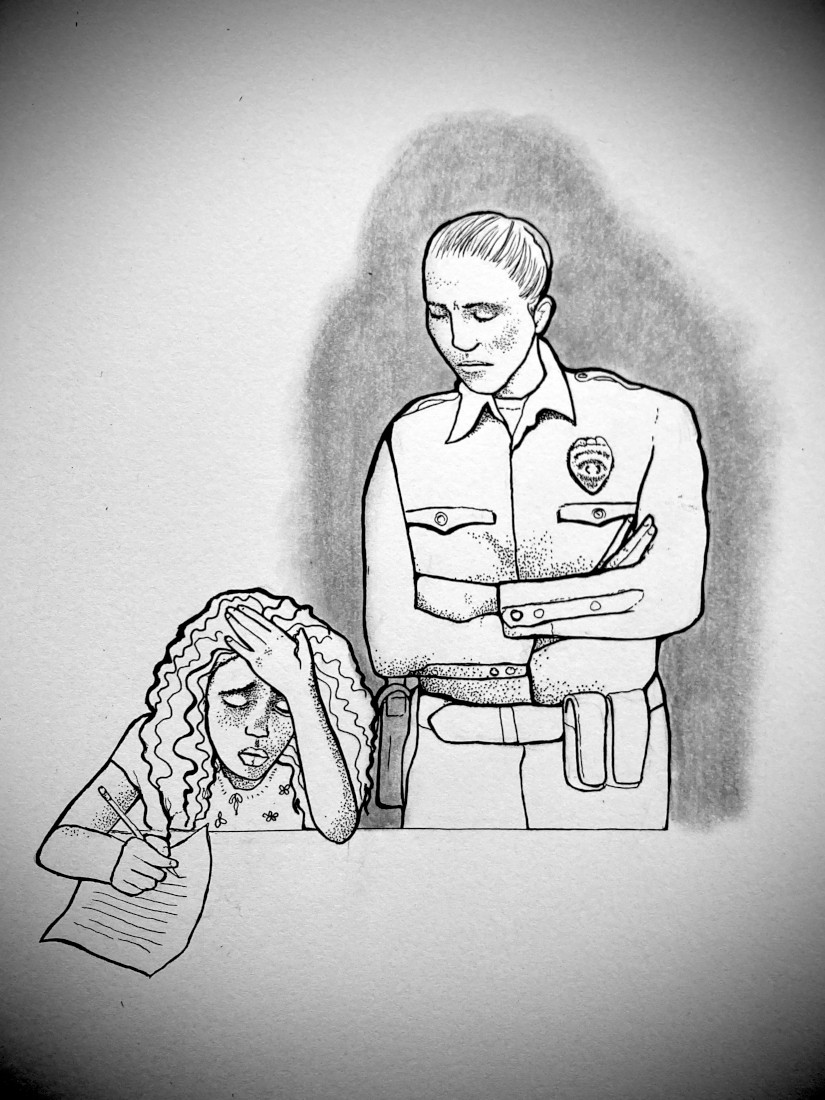Police training for private security?
Province amends public safety act as SRO programs cut
Illustration by Gabrielle Funk
Justice Minister Cameron Friesen said the amendments arose in response to an awareness that security at healthcare facilities and post-secondary require additional support due to “size of facility and number of people.”
These specialized security staff will receive additional training from services including the Winnipeg Police Service (WPS), the Royal Canadian Mounted Police and Manitoba Justice. ISOs are then granted permission to patrol institutions with batons, aerosol weapons and handcuffs. They will also be granted the authority to take intoxicated people and trespassers into custody.
The decision to implement an ISO program in Winnipeg can be linked to Winnipeg Regional Health Authority data that documented over 600 violent incidents at two Winnipeg hospitals between 2016 and 2018.
The ISO program bears some resemblance to the WPS’s school-resource officer (SRO) program that places armed police officers in high schools.
In the last two years, two school divisions in Manitoba have cut ties with the program. The Louis Riel School Division opted to redirect funds from the SRO program to implement “a diversity, equity, inclusion and anti-racism initiative,” as Kayla Rosen reported for CTV News Winnipeg.
There’s also a grassroots movement against the program: Police Free Schools Winnipeg. PFS Winnipeg is a group of parents, teachers, staff and students who collaborate to remove SROs from Winnipeg school divisions.
Irene Bindi is a parent organizer with PFS Winnipeg and believes initiatives like ISO and SRO programs are harmful to historically marginalized communities and worries that racialized, gender-diverse individuals and those living with disabilities or mental-health issues will be unfairly targeted by these officers.
Bindi sees the ISO program as an extension of policing, just like SROs, and rejects claims that individual institutions are able to rise above harms to marginalized communities when using this approach to community safety, stating that many studies have shown people from historically marginalized groups are likely to feel “intimidated, harassed and surveilled” by police.
“What that (claim) doesn’t acknowledge and doesn’t take into account is the way that racism and carcerality and control are woven into policing and into the broader education system,” she says.
Bindi recommends identifying alternate community resources that can help individuals instead of taking a punitive approach to incidents, which she says is often done by institutions that employ SROs.
While some schools like the University of Manitoba are unsure whether they’ll implement ISO programs in their communities, others like the University of Winnipeg (U of W) have already stated they will not.
Wade Carriere, director of security and risk for the U of W, says allowing only authorized persons on campus has reduced security incidents. Carriere and his team look forward to continuing to welcome students back to campus, stating the university has a strong security team “who build relationships with students, staff, faculty and the broader community.”
Published in Volume 76, Number 11 of The Uniter (November 25, 2021)







